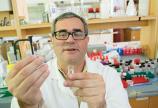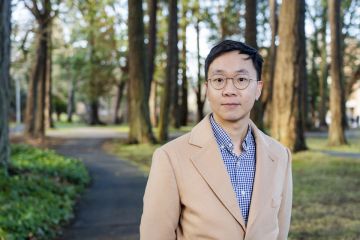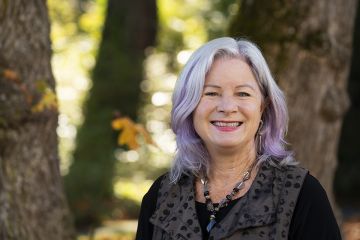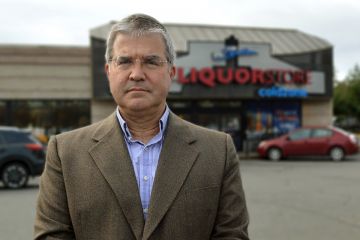Mapping the COVID-19 recovery
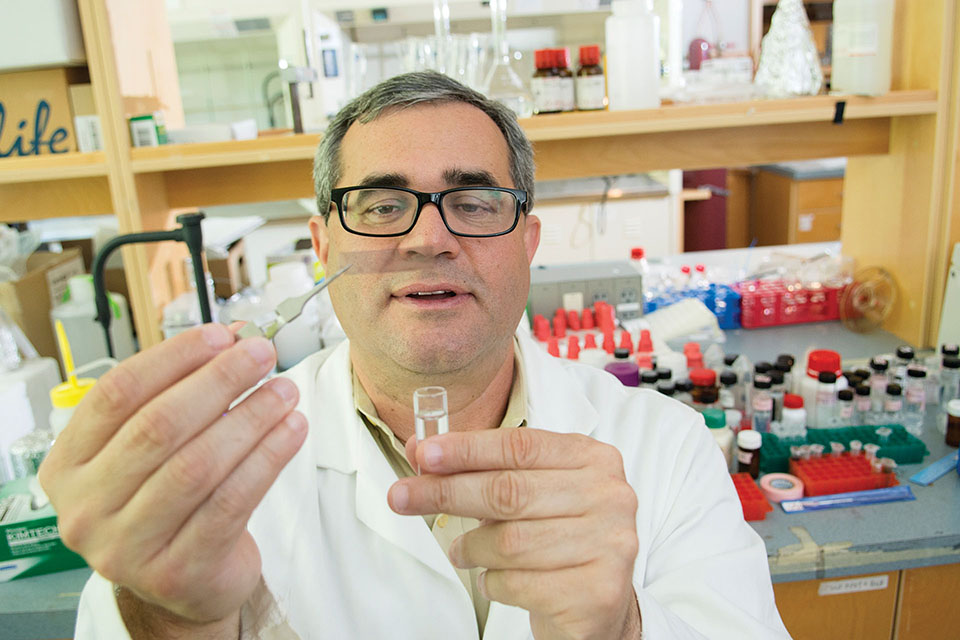
UVic scientists are leading efforts to protect our health, and working with the community to ensure the social and economic resilience of our society.
A low-cost screening test that can be used from your home and read in minutes could dramatically change how rapidly and safely the world resumes many of its pre-pandemic functions—long before the advent of an effective vaccine. That’s just one of dozens of different ways that UVic researchers are contributing to the global challenge of COVID-19. In the months and years ahead, medical advances will also be met with a wide range of social and economic responses to restore the health of Canada, and the world.
How Zika paved the way for a rapid, inexpensive, non-invasive COVID-19 test
When the coronavirus hit, UVic chemist Alexandre Brolo had already laid the groundwork for an inexpensive virus screening test, based on nanomaterials research. His team had already proven that they could detect proteins from both Zika and dengue fever using patient saliva samples. That’s why Brolo and a Victoria-based commercial partner, ImmunoPrecise Antibodies, were able to announce this May that they were developing a COVID-19 saliva test that could be read using a cell phone.
“Testing is an indispensable tool for public health officials in controlling the spread of COVID-19,” says Brolo.
“A real-time COVID-19 test could be used in public spaces where you need to be able to rapidly screen people,” Brolo adds. “The simple platform and easy-to-obtain sample could be used by non-health professionals or as a home-testing kit.”
Reducing transmission with virus-resistant coatings
High-touch surfaces—from doorknobs and shopping carts all the way to countertops and hospital equipment—could be getting a safety upgrade in the near future, thanks to the work of UVic civil engineer Rishi Gupta.
The first place you’ll likely run into one of his team’s virus-resistant coatings is on public wash basins. With support from the same Natural Sciences and Engineering Research Council of Canada granting program that’s also supporting Brolo’s work, Gupta and BC-based Valley Acrylic Bath have teamed up on a two-pronged project that involves developing an acrylic-based coating to repel the coronavirus, and then installing compact wash basin prototypes at the front doors of high-traffic public locations in Victoria and Vancouver.
The new coating will be designed to make it difficult for the coronavirus’s crown-like spikes to adhere to surfaces. Because vinyl-coated acrylic products like wash basins are already fairly hydrophobic, as well as being relatively inexpensive and lightweight—and because they’re a key part in antiviral hygiene—they will be used as a starting point for the new coating, which will be applied to surfaces as the final finish.
Readiness and support for the social and economic recovery effort
Communities and campuses alike are working to respond to the unprecedented disruption our society has faced, in order to emerge from the COVID-19 pandemic with health and well-being intact. And some of our most pressing needs are areas where UVic is a recognized national leader in community-based health research.
UVic is home to the Institute on Aging and Lifelong Health, where psychologist Stuart MacDonald is one of many researchers studying the effects of social isolation on older adults, a demographic being disproportionately affected by the COVID-19 pandemic.
The UVic-based Canadian Institute for Substance Use Research has promoted safer guidelines for drinking in our era of social isolation, and begun research on changes in alcohol consumption during the crisis—all while continuing to address BC’s continuing opioid epidemic.
Nathan Lachowsky, a community-engaged researcher with UVic’s School of Public Health and Social Policy, is studying ways isolation has impacted gay, bisexual, queer, trans and Two‑Spirit men in Canada.
UVic is also playing a role in our economic recovery. A new set of sponsored internships for students—a partnership between UVic’s Gustavson School of Business and Mitacs, a national non-profit research organization that supports industrial and social innovation—will soon begin to help small-and medium-sized enterprises and non-profit organizations adapt to the new economic reality in the wake of COVID-19.
Photos
In this story
Keywords: COVID, research, viruses, chemistry, industry partnerships, community, nanotechnology
People: Alexandre Brolo, Rishi Gupta, Stuart MacDonald, Nathan Lachowsky
Publication: The Ring

